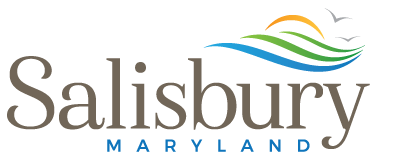COMMUNITY DEVELOPMENT BLOCK GRANT – ENTITLEMENT COMMUNITIES – QUICK FACTS
CDBG Program Summary
The CDBG Program is authorized by Title I of the Housing and Community Development Act of 1974, as amended, and provides annual grants on a formula basis to entitled metropolitan cities and urban counties to implement a wide variety of community and economic development activities directed toward neighborhood revitalization, economic development and the provision of improved community facilities and services. CDBG activities are initiated and developed at the local level based upon a community’s perception of its local needs, priorities, and benefits to the community. Each entitlement grantee receiving CDBG funds is free to determine what activities it will fund as long as certain requirements are met. These requirements include that each activity is eligible and meets one of the following national objectives:
* benefit to persons of low and moderate income,
* aid in the prevention or elimination of slums and blight,
* meet other community development needs of a particular urgency.
CDBG Program Purpose
The purpose of the federal CDBG Program is to develop viable urban communities by providing decent housing and a suitable living environment, and by expanding economic opportunities, principally for persons of low and moderate income.
CDBG Program Funds and Fund Limitations
No more than 20 percent of the grant (plus program income) can be spent for planning and administrative costs. No more than 15 percent of the grant (plus program income received during the preceding program year) can be spent for public service activities.
Based on information received from HUD, the City of Salisbury expects to receive the following amount of CDBG funds for program year 2021 (7/1/2021 – 6/30/2022):
Total amount of CDBG funds – $399,903
- CDBG Administrative funds $70,000
- CDBG Program / Project Funds $329,903
- Maximum amount available for Public Service projects $59,985
CDBG Eligible Activities (24 CFR 570.201-206)
Eligible activities may be carried out directly by the grantee, or through the use of contractors or sub-recipients, or through the use of Community Based Development Organizations (CBDOs) as defined at 24 CFR 570.204. A CBDO may carry out activities that are eligible and those that are otherwise ineligible, such as new housing construction, as provided by 24 CFR 570.204(b) and 570.207(b).
Eligible activities include:
- Acquisition/disposition and clearance of real property;
- Public improvements and facilities (e.g., senior citizens center, recreation center, day care center);
- Public services (e.g., child care, health care, job training/education programs, recreation programs, drug abuse counseling/treatment, and services for the homeless);
- Relocation payments/assistance;
- Rehabilitation of residential, commercial, and industrial or other nonprofit-owned, nonresidential buildings;
- Historic preservation;
- Lead-based paint hazard evaluation and reduction;
- Code enforcement;
- Assistance to micro-enterprises;
- Homeownership assistance;
- Urban renewal completion;
- Technical assistance to increase the capacity of public/private nonprofit organizations;
- Assistance to institutions of higher education;
- Program administration costs related to planning and execution of CDBG-funded activities; and
- Other selected activities.
CDBG Ineligible Activities
Ineligible activities include buildings used for the general conduct of government, general local government expenses, and political activities.
CDBG Funded Projects
The City may undertake some of these activities directly itself, others may be sponsored and carried out by other government agencies or non-profit community groups. Eligible non-profit community groups or organizations may apply for either a public service or a capital grant. Applicants are called subrecipients. Subrecipients must be a registered 501(c)(3) nonprofit organization AND MUST provide supporting documentation that confirms this status. Any capital project proposed on property not held by the subrecipient must include written approval by the property owner. Subrecipients requesting funds for community services must be either developing a new public service, or proposing a quantifiable increase in service for an existing program.
All applicants must be aware that CDBG funds are awarded on a reimbursement basis only. Grantees must have sufficient operating funds available to allow them to expend those funds on project expenses, provide the City with copies of paid invoices, cancelled checks, and any other requested documentation, and then wait to be reimbursed for those expenditures. This can sometimes be a lengthy process, so each applicant must be aware that this is a condition of the award. The maximum amount any applicant may seek in any competitive funding round is $150,000.
